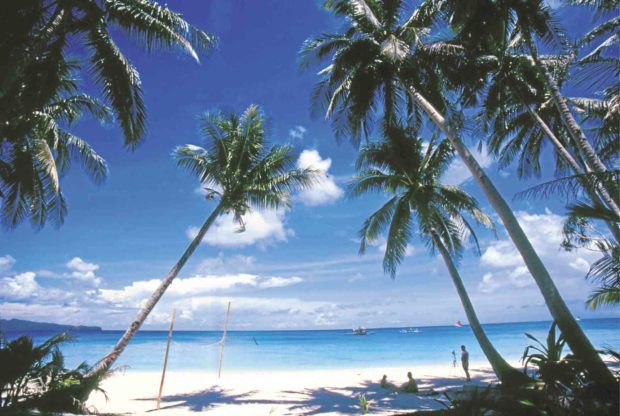
House Bill 7229 seeks to protect the country’s tourist spots. CONTRIBUTED PHOTO / LESTER LEDESMA
The House committee on tourism has approved a bill which seeks to protect tourist destinations in the country from environmental issues.
On Saturday, Rep. Lucy Torres-Gomez, committee chair, said she filed House Bill 7229 or the proposed “Philippine Sustainable Tourism Act” to address the Filipino people’s clamor for resolution and action, especially on issues of environmental degradation, public health and to prevent future “cesspools.”
Boracay, a resort island in the province of Aklan in Western Visayas and a major tourist destination, was described by President Rodrigo Duterte as a “cesspool” because of the worsening sewerage conditions in the island. Its six-month closure for rehabilitation is scheduled to start on April 26.
Gomez said sustainable tourism was no longer a choice but already a new norm.
“The Philippine Sustainable Tourism Act will offer a paradigm shift from our old ways of doing business in the tourism industry,” Gomez said in a statement.
“Therefore, we must all band together to protect the industry that has helped lift our country’s GDP (gross domestic product) growth,” she added.
The United Nations World Tourism Organization (WTO) defines sustainable tourism as: “Tourism that takes full account of its current and future economic, social and environmental impacts, addressing the needs of visitors, the industry, the environment and host communities”
The proposed measure creates the “Philippine Sustainable Tourism Council” which would be convened by the House committee on tourism, and would have the responsibility of achieving and maintaining “Sustainable Tourism”
It would be composed of members of the House and Senate tourism committees, the Department of Tourism, Department of Environment and Natural Resources, Tourism Infrastructure and Enterprise Zone Authority, Department of Public Works and Highways, Department of Health, Department of Trade and Industry; National Economic and Development Authority, Department of Interior and Local Government, Department of National Defense, Department of Finance; Department of Budget and Management; and Local Government Units, among others.
Among the tasks of the Philippine Sustainable Tourism Council are to establish a unified definition of “Sustainable Tourism;” establish goals to achieve and maintain “Sustainable Tourism;” and integrate all existing laws pertaining to the Tourism Industry in various areas that influence the sustainability of the industry.
Likewise, the Philippine Sustainable Tourism Council is mandated to create new and necessary policies and regulations to achieve national “Sustainable Tourism” goals; institute a system for accountability to systematically enforce the Act; and to generate procedure for mainstreaming “Sustainable Tourism” laws and their enforcement at all levels, from national agencies to local government units. /cbb